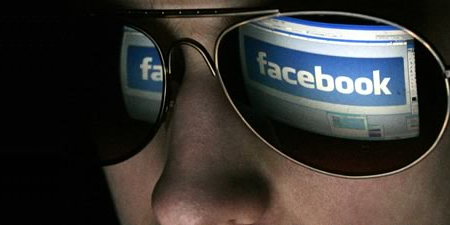Killing off Facebook: Facing essays and social exclusion head on

My friends know full well that I have an addictive personality.
I smoke far too much, though granted as a student I don't drink enough. But I work 'too much' according to my friends and family, though I naturally argue otherwise. And I drink in excess of fifteen cups of coffee a day.
Instead of giving up Charlie Sheen for Lent, because as a prolific atheist I cannot think of anything more offensive to my own non-existent belief system than to give up something for a lifestyle choice I do not prescribe to, I thought I'd give something else a go.
Social media, social networking, and pretty much anything relating to online socialisation. Well, screw you. Screw you for a week. I don't need you in my life.
Or, rather that is what I'm telling myself. It was either give something up, or just simply give up.

Unlike the vast majority of people who give up something either for Lent or simply to prove a point, I am not doing it to prove a point, nor am I doing it 'just because it's purposefully difficult to do'.
No. I'd like to show that Facebook, Twitter and other social media and networking sites are not the be all and end all of the Generation Y, and this 'innate need' to be plugged into the social matrix is nothing short of a fallacy.
Plus, it's essay season and could really do without a constant social barrage of nonsensical drivel pounding my mind like a slow moving tram.
The younger ones have been given a bad rap as of late. Facebook this, Twitter that, text messaging and the death of the phone call - we've all seen it. Some of us even wrote about it. But we are not addicted in the way that the older generation thinks.
OK, so I am trying to prove a point.
Sociologically, one of the greatest underlying fears for most is social exclusion; being detached from our social norms and friendship groups, and plunging into a state of solitary isolation.
It is terrifying. Nobody wants to be truly alone in this world, even if some of us, like myself, who enjoy their own company just a little bit too much.
If the Internet is a human right, and the debates are still ongoing, is it the abstract notion of a worldwide interconnected system of computers that is crucial to our living, or is it more specifically the access to the websites and online pages that we hold dear to our being?
The point is, while we have social media to access information, news, brands and our friendships, a world still exists outside the realms of our insular pockets of our online social groups. It is those we need to remember, and build upon, rather than relying on an infrastructure to maintain them.
But also, by disconnecting entirely from Facebook as one part of this mission, it will allow me to broadly see how the world runs without the network plugging itself at any given moment during the average working day.
If I can replace social media with real-world social interaction, then all the better. But I am expecting to find that social networking enhances, rather than replaces social interaction.
But we will see. The lessons will be learned when I turn my accounts back on after a week. Only then can I adequately judge.
How this is going to work
I have changed my account passwords to an alphanumeric random burst of characters, copied down on a piece of paper and handed to an arbitrary friend - just in case. Clipboard is clear, my BlackBerry is logged out of all social media services, and my cookies have been wiped.Basically, I'm back in 1999 at the age of eleven. Instant messaging was around, and so was email. These will be the only forms of communication I can communicate with. Mobile phones were still in their modern infancy, but text messages and phone calls are permitted.
At the end of the week, I will tally up the things that I've missed within my social circles, including events and inside jokes. I'll also consider the social aspects, including documenting how
And all of this will be described in a diary-like format, published this time next week on Tuesday.